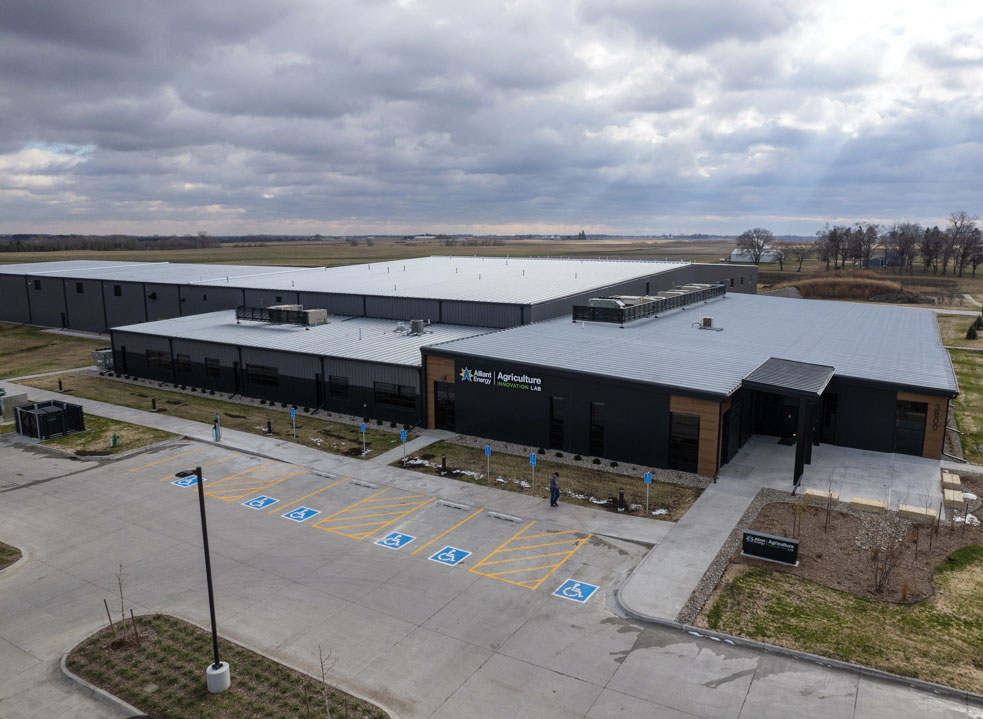How will technology and AI affect Iowa’s retail industry?
Des Moines part of national study examining how front-line workers’ jobs will change

JOE GARDYASZ Jul 10, 2019 | 4:06 pm
4 min read time
888 wordsBusiness Record Insider, Innovation and EntrepreneurshipA visit to a grocery store or big-box retailer can already seem like a futuristic endeavor, particularly for those who remember the days when fast-fingered clerks made mechanical cash registers hum as they swiftly keyed in the prices by hand. In many cases, customers can now skip any human interaction as they scan, bag and carry out their purchases.
How will technology and artificial intelligence drive further changes in the retail industry and its workforce? It’s a potentially messier prospect than a wet cleanup in Aisle 3, and one that will affect about 16 million U.S. workers who clock in at traditional retail jobs.
A select group of Greater Des Moines retailers, along with retailers in the Boston and Phoenix areas, are participating in a “Future of Retail” research study being conducted by the Corporation for a Skilled Workforce. Based in Ann Arbor, Mich., the national nonprofit works with government, business and community leaders to support the creation of good jobs and the highly skilled workers to fill them.
Anna Hughes, a policy associate with CSW, led a series of panel discussions recently in Des Moines. Three separate panels were formed to discuss trends at the worker, employer and community levels, the first consisting of front-line retail workers from nine retail companies in Greater Des Moines. A second panel was made up of employer representatives from those companies, and a third group consisted of workforce development representatives.
The on-site visits in Des Moines, to be followed later this year by visits in Phoenix and Boston, are a component of a larger project by CSW to better understand the changing landscape of retail, Hughes said. The Future of Retail study is partially funded by the Walmart Foundation.
“As you think about automation and technology, that’s going to impact a huge portion of the retail workforce,” she said. “Our goal is trying to understand: What are the skills and competencies needed for the future? And how do we think about worker advancement in that sector? When you go to a grocery store now and use an automated checkout stand, what does that mean for a person who’s a cashier? For an employee who may have to shift jobs, what does that look like?”
Before the site visit to Des Moines, the researchers examined the current retail ecosystem to consider the kinds of changing consumer behaviors that retailers are facing, and what those changes mean for the job skills required of workers. A second component of the research, which is still under way, is looking at what companies are doing about these changes.
“We’re doing case studies right now of small regional partnerships of businesses that are doing worker retraining,” Hughes said. So we’re looking around the country to figure out who’s doing some innovative things.”
Small retail business owners are responding to more subtle changes in how customers are using the internet to shop. Among the participating retailers on the panels was Angela Jackson, owner and design consultant of The Great Frame Up art store in West Des Moines.
“I do think that people come to retail locations with more information,” Jackson said in a telephone interview. “So we have added more technology to our website to help people.”
As an example, a customer can request an online quote to get a general idea on prices for framing, she said. “We have hundreds of options, so the opportunity to do a quote before coming to the store gives them a frame of reference so they know what to expect.”
Technology has also affected the store’s inventory practices, Jackson said.
“We don’t carry as many ready-to-hang items in our store; we direct people to our ‘shop for art’ page, and give them the opportunity to ship to the store [to be framed], because we feel there’s a lot of opportunities for buying art online.”
For Jackson, who has been in business for 14 years, hearing from other retailers and a national organization about trends they’re seeing is always helpful, she said.
One idea she proposed to the panel was her concept to provide retailers a tax credit at the state or federal level for hiring student interns. “Smaller businesses don’t have a lot of staff, but we’d like to be able to employ high school or college students,” Jackson said. She currently has three employees at her framing shop.
Although the Corporation for a Skilled Workforce research team is still synthesizing its findings for a report that’s expected to be released late this year, Hughes did have a few broad takeaways.
“I think the major takeaway is that retail is still going to be a major component of the workforce,” she said. “You see a lot of headlines about the ‘retail apocalypse’ and that retail is dying. And as we traditionally know it, retail might be going away. But we’re seeing that people still want to shop in stores and that there’s still going to be a need for a retail salesperson inside of a store.
“We’re seeing with technology and automation that it’s really about enhancing the customer experience — all of the efficiencies that technology provides to retailers with the consumer in mind. And what the front-line worker and entry-level workers will really need to do is to learn how to work alongside these technologies.”








